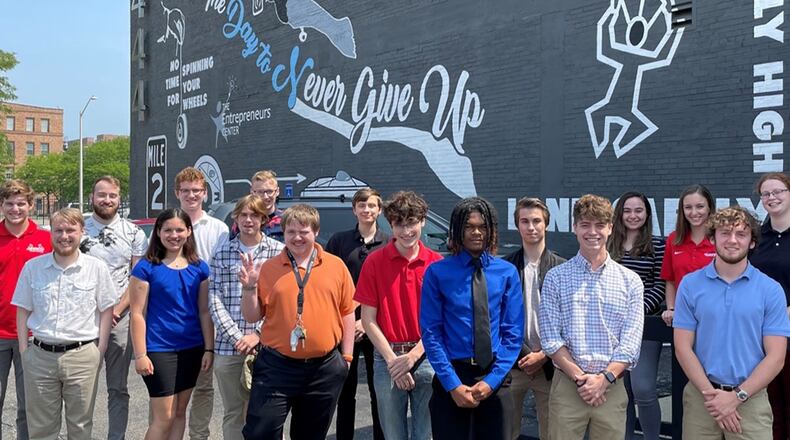“The idea for the program originated in March 2021 from Dr. Bart Barthelemy of WBI at a meeting about AFRL’s Digital Transformation Strategy,” said Brad Fairfax, an innovation project manager with WBI. “The concept immediately gained traction and a collaborative team comprised of AFRL, WBI and commercial partners developed the entire program in two months and welcomed the cohort of interns in early June.”
AFRL and WBI worked together with partners, including Anautics and Science Applications International Corp., to develop this program with real-world applications in accordance with the U.S. Air Force’s Digital Transformation initiatives. The Strategic Ohio Council for Higher Education also assisted in program efforts by connecting student interns with this opportunity.
“The ultimate goal of the program is to collect actual execution data regarding the implementation of digital engineering practices to make informed decisions about how to employ those practices at scale across AFRL,” said Fairfax. “Another equally important goal of the program is to provide an outstanding work and learning opportunity for the STEM interns that could be part of the future AFRL workforce.”
The AFRL-WBI team created an immersive experience for 24 summer interns that highlights innovative practices and opens the door for new learning opportunities for the participants.
“The intent of this summer internship program is to explore both the power and the challenges of digital engineering by equipping the interns with a suite of digital product management and engineering tools and having them develop and manage a product with those tools,” said Fairfax. “The product is a commercially available drone that is being modified to perform the search and rescue mission, and the cohort’s main objective is to establish the digital infrastructure for the drone.”
The interns developed solutions for the drone to be used in a variety of practical scenarios.
“These interns range from high school to graduate students and come from a variety of educational backgrounds, including engineering, biotechnology, pre-law, design, and cybersecurity,” said Dr. Pam Kobryn, the digital engineering lead at the Aerospace Systems Directorate. “Their diverse backgrounds allow them to mirror the AFRL workforce, comprised of a variety of scientists, engineers and researchers with unique career experiences.”
This internship program allows students to gain hands-on experience and opens the door for future digital engineering capabilities within AFRL.
“The Digital Drone Discovery Project will provide a concrete example and an actual Integrated Digital Environment with which to familiarize AFRL personnel,” said Kobryn. “This example can be extended in the future to include additional elements of AFRL’s business, such as program management, cost estimating and flight testing.”
About the Author
